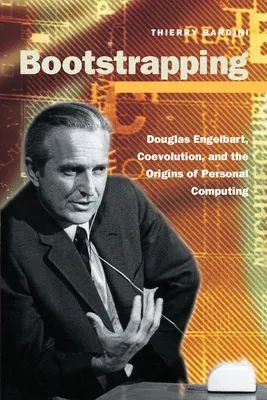Bootstrapping analyzes the genesis of personal computing from both
technological and social perspectives, through a close study of the
pathbreaking work of one researcher, Douglas Engelbart. In his lab at
the Stanford Research Institute in the 1960s, Engelbart, along with a
small team of researchers, developed some of the cornerstones of
personal computing as we know it, including the mouse, the windowed user
interface, and hypertext. Today, all these technologies are well known,
even taken for granted, but the assumptions and motivations behind their
invention are not. Bootstrapping establishes Douglas Engelbart's
contribution through a detailed history of both the material and the
symbolic constitution of his system's human-computer interface in the
context of the computer research community in the United States in the
1960s and 1970s.
Engelbart felt that the complexity of many of the world's problems was
becoming overwhelming, and the time for solving these problems was
becoming shorter and shorter. What was needed, he determined, was a
system that would augment human intelligence, co-transforming or
co-evolving both humans and the machines they use. He sought a
systematic way to think and organize this coevolution in an effort to
discover a path on which a radical technological improvement could lead
to a radical improvement in how to make people work effectively. What
was involved in Engelbart's project was not just the invention of a
computerized system that would enable humans, acting together, to manage
complexity, but the invention of a new kind of human, "the user." What
he ultimately envisioned was a "bootstrapping" process by which those
who actually invented the hardware and software of this new system would
simultaneously reinvent the human in a new form.
The book also offers a careful narrative of the collapse of Engelbart's
laboratory at Stanford Research Institute, and the further translation
of Engelbart's vision. It shows that Engelbart's ultimate goal of
coevolution came to be translated in terms of technological progress and
human adaptation to supposedly user-friendly technologies. At a time of
the massive diffusion of the World Wide Web, Bootstrapping recalls the
early experiments and original ideals that led to today's "information
revolution."

